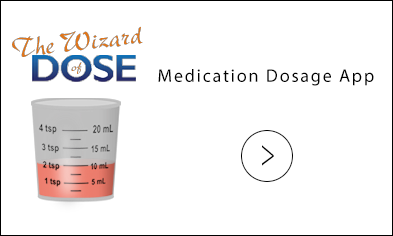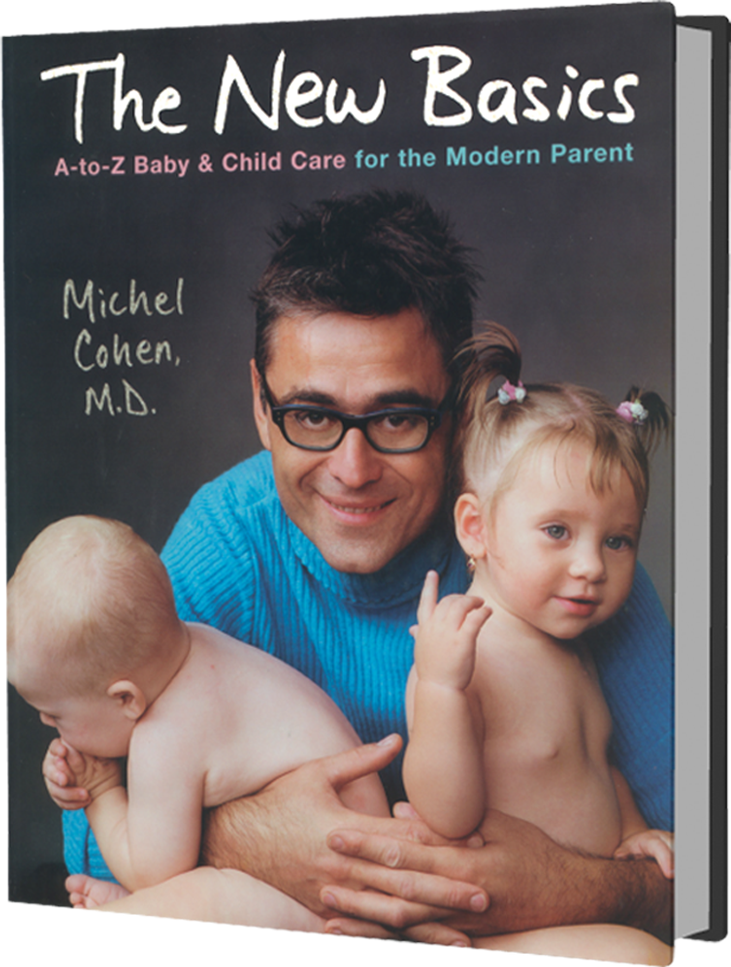
Eczema
Eczema generally starts around three to four months of age. The mildest and most common forms show up as dryness on the cheeks, torso, and limbs. Eczema is quite itchy and bothersome enough that even newborns will demonstrate amazing coordination in their efforts to scratch it. Unfortunately, the scratching worsens the condition and provokes a vicious cycle of irritation. In older children, eczema appears less on the face and more on the torso, belly, and extremities.
The course of the condition is unpredictable and very frustrating. It often waxes and wanes dramatically from one day or week to the next. Equally frustrating is the fact that flare-ups seem to happen independently of any triggering factor that you can put your finger on. Happily, eczema generally disappears with age, or at least the episodes become less intense and less frequent. Most kids completely outgrow it after their first birthday, and for those who don’t, the outbreaks become less frequent and less intense until they outgrow it later. Eczema typically runs in the family; usually, one or both parents had the condition as a child.
Causes
Eczema’s triggering factors are so multiple and intertwined that you could drive yourself nuts trying to figure out what’s causing it in your child. In my opinion, food allergies are the least likely cause, despite what you may have read. I have frequently seen parents eliminate different nutrients from a child’s diet in misguided attempts to avoid or reduce eczema. These changes might appear effective at first, since the eczema will improve naturally, but it soon reappears as part of its normal cycle, even on the new diet. Environmental factors are actually more important, especially in older children.
Here are a few:
Soaps
Drying agents like soap or shampoo or, even worse, bubble baths certainly don’t make things better [See: Soap]. Plain old water is the most soothing way to wash your child. Frequent soap-free baths won’t trigger or worsen eczema, especially if a moisturizer is applied afterward.
Warm Weather
Exacerbates eczema, because sweat irritates skin.
Cold Weather
More precisely, dryness caused by heating systems in cold weather provokes irritation.
Mechanical Irritation
Washcloths, wool, or any abrasive material can also be irritating to the skin.
Viral Infections
Eczema frequently flares up during colds and flus. Distinguishing between a viral rash and a bout of eczema can pose a diagnostic challenge, but fortunately treatment is the same for both: Apply moisturizer.
Treatments
Moisturization
Eczema starts with dryness of the skin. This leads to irritation, which in turn causes itching, then scratching, and finally abrasions that can become infected. You can control the cycle of irritation by using a moisturizer. Any greasy ointment, even petroleum jelly, will trap moisture in the skin and prevent it from drying. You’re going to need a lot of moisturizer, so there’s no need to spend a fortune on a fancy formula. Apply it liberally every day (even twice daily, if necessary) to damp skin, because the added moisture makes a huge difference. The skin should feel greasy almost all day long when you’re treating severe eczema.
Steroids
At times, no matter how diligently you have hydrated the skin, it will stubbornly remain irritated. That’s when an anti-inflammatory prescribed by your doctor can help considerably. Steroid creams such as hydrocortisone have potent anti-irritant effects and work wonders for eczema, stopping the nastiest-looking outbreaks in a matter of days. They are available over the counter or in more potent prescription strengths. Apply the cream as directed and for the time prescribed by your doctor. This course of treatment will take at least a full week or even a little longer until the condition is completely cleared up.
People often apply steroids too sparingly or stop treatment as soon as the rash fades in intensity. Mistake! Since the irritation process has not been fully eradicated, the redness will reappear right away, prompting you to resume treatment. Ultimately, you will end up applying more than you would have if you had followed the directions.
Steroids can also be used safely on the face. The information inserts that come with these creams can certainly make you wary. It’s true that the medicine can be absorbed through the skin into the bloodstream and that high levels can be toxic, but when used judiciously, steroid creams are perfectly safe and extremely effective.
Anti-Itch Medications
Anti-itch medications (antihistamines) decrease the scratching to help stop the vicious cycle of eczema. Long-acting preparations such as Zyrtec and short-acting drugs such as Benadryl work well for itching too but may cause drowsiness.
Anti-Itch Medications
Anti-itch medications (antihistamines) make sense in theory: Decrease the scratching, and you’ll stop the vicious cycle of eczema. But in practice, long-acting preparations such as Zyrtec have limited effects and undesirable side effects, while the short-acting drugs such as Benadryl work well but require frequent administration and cause drowsiness. I recommend you use the latter when the itching becomes very intense.
Toddler “Manicures”
There is one final non-pharmaceutical way to reduce the harmful effects of scratching: Trim Jimmy’s nails.
In Summary
The best approach to eczema is to prevent outbreaks by moisturizing regularly and to treat the really bad episodes with steroids. Rest assured, age will bring relief.




 MEDICATION DOSAGE
MEDICATION DOSAGE

